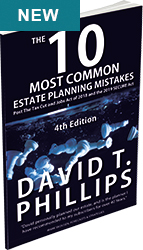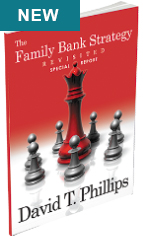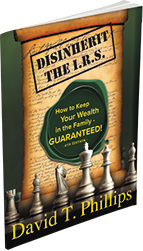
Dr. Mark Skousen - Forecasts and Strategies
Skousen - Stock-Indexed Annuities — A Conservative Way to Invest in Stocks With No Downside Risk!

Stock-Indexed Annuities —
A Conservative Way to Invest in Stocks With No Downside Risk!
Let me mention a strategy that I’ve advocated for years for conservative investors and retirees who can’t afford to lose their principal: stock-indexed annuities. My wife bought stock-indexed annuities right before the 2008 financial crisis and has doubled her money — and won’t lose any money this year.
Skousen - Reduce Your Long-Term Care Expenses by up to 90%

Reduce Your Long-Term-Care Expenses by up to 90%!
No one can predict a long-term-care medical event. But if it does happen, here is something to consider: An IRS-approved investment vehicle that lets you pre-pay (tax-free) for long-term care expenses… and can reduce your long-term-care expenses by up to a whopping 90%.
Read more: Skousen - Reduce Your Long-Term Care Expenses by up to 90%
Skousen July 2017

Best 'Leveraged Care' Solution Today
A topic on everyone's mind is long-term health care because there is a 72% probability that it will personally impact each of us. Another reason it is such a big issue is that the largest generation of Americans, the so-called Baby Boomers, are living it on a daily basis with their aging parents.
Skousen November 2012

Pages 7-8:
The Fiscal Cliff in Estate Planning
Much has been written about the "fiscal cliff" and the end of low tax rates on investments when the Bush tax cuts expire on January 1,2013. But it also is impacting estate planning. The estate exclusion is set to roll back to $1 million, with a 55% tax bracket, on New Year's Day. Even if Congress grants an extension, something will happen next year and the facts are clear: With enormous and growing deficits, some form of estate tax is probably going to survive.
Skousen December 2014

New Ways to Invest The Incredible Tax & Investment Benefits of the '3-to-1 Long Term Care Annuity Combo'
"If you are 65 years or older, you have a 69% chance of requiring some type of long-term medical care." - David T. Phillips
For the past couple of years, I've recommended profiting from the aging of our population through healthcare real estate investment trusts (REITs) and the biotech revolution. In fact, someday you yourself may end up using the services of assisted living facilities or a new biotech product. The number of Americans 65 or older will more than double by 2040 to 81 million, and the vast majority will end up using a nursing home or needing some kind of assisted living. Paying for these services is expensive, and now is the time to plan ahead.




